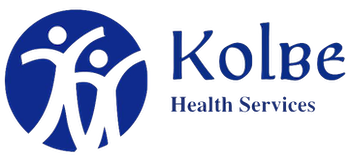
How Co-Occurring Disorders Are Treated
February 7, 2022
How Does Disulfiram Work?
April 26, 2022Family has always played an important role in addiction recovery. Every family is a support system that is formed by and forms the behaviors of every member. Families lean on and support each other. If one person is suffering from illness or addiction, it affects the family as a whole.
This is why family therapy is an important part of recovery. Family addiction counseling involves helping the entire family understand addiction and how to rebuild the family patterns to support recovery and sober living.
What is Family Therapy?
Family therapy in addiction brings together the people who are most important to the person in recovery. This is often the nuclear family, household family members, and those who have played the strongest roles in a recovering person’s life. Treatment types vary depending on the age of each person and the needs and structure of the family.
Family therapy approaches the family as a system. When the system is stressed by addiction and dysfunction, this can lead to dysfunctional behavior for everyone involved. Family therapy is often used in substance abuse treatment and has been shown to be effective for both adults and teens. Together, you will build a recovery support network that increases care and reduces harm for everyone involved.
Benefits of Family Therapy for Addiction
What does family addiction counseling offer? Together, the process can benefit everyone in the family. Family therapy for addiction offers a way to build trust, set boundaries, and understand each other.
Understanding Addiction
The first step is to educate the entire family about what addiction is and how it influences behavior. Addiction can change the feelings and actions of someone they love. Understanding how addiction works and the influence it has will help everyone build a stronger recovery household.
Awareness of Family Dynamics
Therapy will help the family become aware of how maladaptive family patterns can contribute to addiction and take away from recovery. The family will explore how healing and building a more functional dynamic will help everyone recover to a more healthy place.
Improving Communication
Communication is often lost to substance abuse. When everyone feels trapped in their own feelings, lashing out and isolation are both more likely. The family will learn to reinvest in each other and communicate to create empathy and teamwork.
Regaining Trust
Dishonesty is a known symptom of addiction that can destroy trust and harmony in a family. It’s vital to rebuild trust one step at a time in order to rebuild the family structure.
Sharing Feelings
When the family begins to heal, it becomes possible to share your feelings – good and bad – about addiction and the recovery process. Burned bridges can be rebuilt. The family will be able to express themselves in a safe space and build understanding from the ground up.
Setting Boundaries
Addiction often erodes boundaries in families. Some family members give too much, some lock themselves away. Setting healthy boundaries is key to building a family support structure that will help everyone to grow and recover from the trauma of addiction in the family.
Learning Self-Care
Finally, family therapy will help every member of the family learn how to take care of themselves, and then take care of each other. Self-care for someone in recovery means mental and physical attention to wellness and sober life. Self-care for family members may mean maintaining boundaries and focusing on your own needs in addition to the needs of others.
How Family Therapy Works
Goals
The most significant priorities of family therapy are to initiate and improve communication, improve the home environment, develop and build strong routines, and create a support network, all to create a safe and secure place for the user and their family.
Setting, Frequency, and Duration
Families can choose how they want to conduct family therapy. Therapy can occur at the center, in the home, or at the therapist’s office. The frequency will depend on your program and scheduling needs. Therapy sessions last between one and three hours over several weeks.
Therapists
Your family therapy will be led by a program therapist or facilitator. They will ask for feedback from everyone and keep the sessions focused. Your therapist will act as a neutral moderator.
Typical Sessions
A typical session starts with check-in where everyone arrives and is introduced. The therapist will then lead a discussion with a rotating focus on individuals and issues.
Family Therapy and Addiction Treatment in Alabama
Is someone in your family recovering from addiction? Families impacted by addiction can benefit as much from family therapy as the person who is in recovery. Kolbe Health Services family therapy is about building a strong system of support for sober living to face the challenges of recovery, and to heal the damages caused by addiction in the family. For family therapy and addiction treatment in Alabama, contact us today.
Image Source: Photographee.eu / Shutterstock




